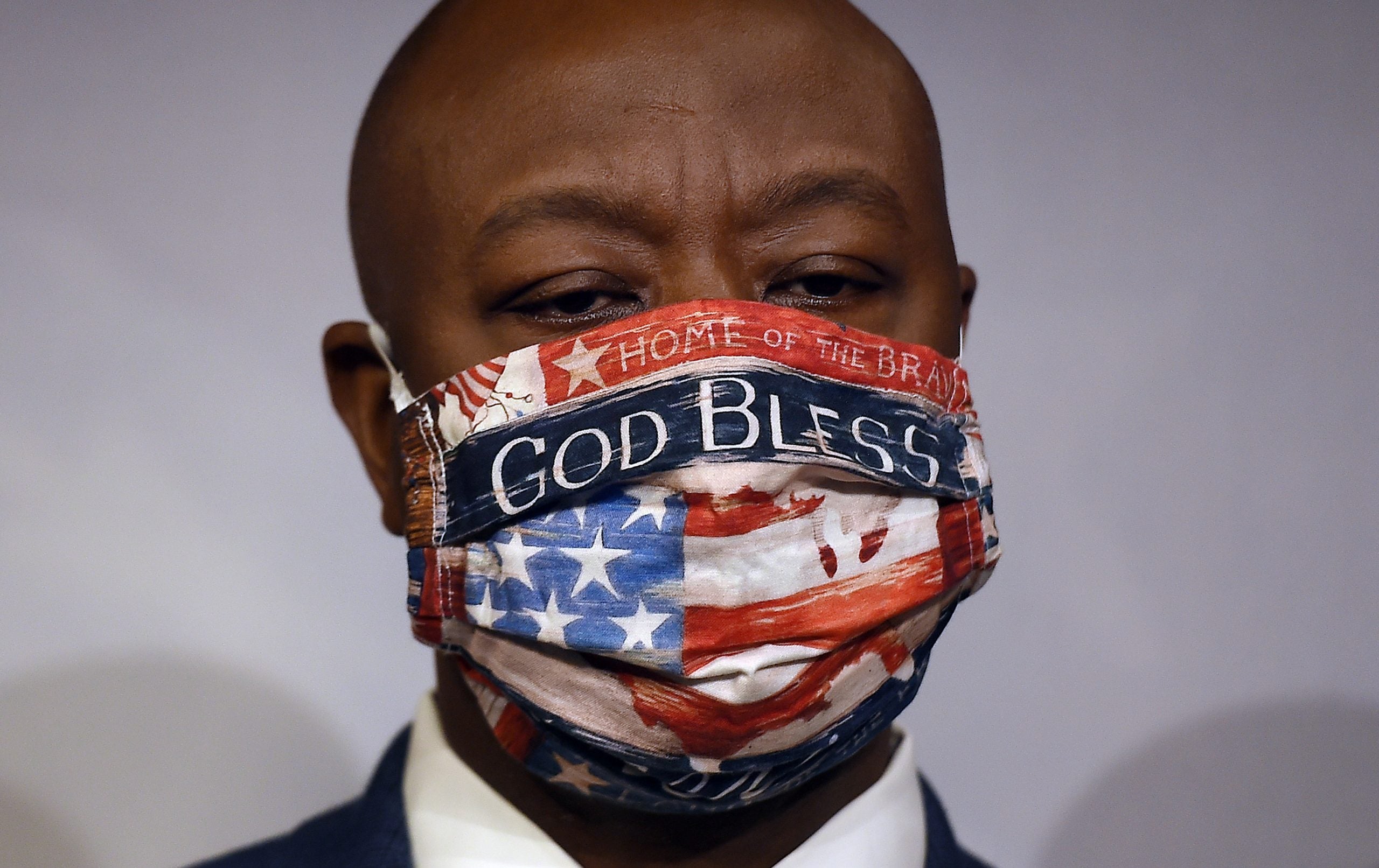
Senator Tim Scott (R-SC), the nation’s only Black Republican in the U.S. Senate, has introduced new legislation that offers the GOP response to policing reform in America.
Scott, along with Senate Majority Leader Mitch McConnell (R-KY) and other colleagues, unveiled the Just and Unifying Solutions to Invigorate Communities Everywhere (JUSTICE) Act on Wednesday.
Scott’s office said the bill looks at long-term solutions focused on police reform, accountability and transparency, while also promoting efforts to find solutions to systemic issues affecting people of color such as education and health disparities.
“The murder of George Floyd and its aftermath made clear from sea to shining sea that action must be taken to rebuild lost trust between communities of color and law enforcement,” said Scott, who’s spoken on record about being stopped multiple times by police while driving.
He said The JUSTICE Act takes “smart, commonsense steps” to address reform. They include ending the use of chokeholds and increasing the use of body-worn cameras to providing more resources for police departments to better train officers and make stronger hiring decisions.
Currently, only about 40 percent of police officers from jurisdictions nationwide report to the FBI after an incident in which an officer has discharged his or her weapon or used force; the bill will require full reporting on that, as well as data as to when, where and why no-knock warrants are used.
The JUSTICE Act will finally make lynching a federal crime, and also creates two commissions to study and offer solutions to a broader range of challenges facing Black men and boys and the criminal justice system as a whole. Meanwhile, as ESSENCE has previously reported, Democrats have offered their own bill to address reform.
Congressional Black Caucus Chair Karen Bass (D-CA), Senators Cory Booker (D-NJ) and Kamala Harris (D-CA), and House Judiciary Committee Chair Jerrold Nadler (D-NY) introduced the George Floyd Justice in Policing Act of 2020 on June 8, 2020. Those behind it describe the bill as a “bold” and “comprehensive approach” to hold police accountable, end racial profiling, change the culture of law enforcement, and build trust between law enforcement and communities by addressing systemic racism and bias to help save lives. On Wednesday, the House Judiciary Committee passed the measure by a vote of 24 to 14. The bill now heads to the House floor for a full vote.